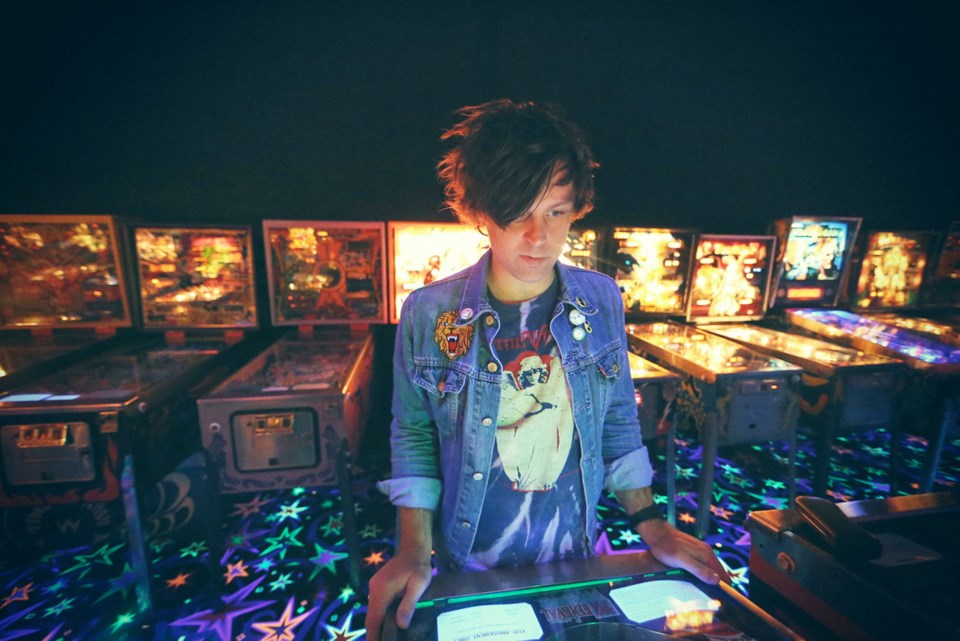What: Ryan Adams with Wardell
When: Tuesday, 7 p.m.
Where: Royal Theatre
Tickets: $42.50 and $59.50 by phone at 250-386-6121, in person at the Royal McPherson Box Office and online at rmts.bc.ca
Ryan Adams never does anything halfway. His mind is programmed to go all out, with no reservations.
Be it writing, recording or partaking in an interview, the North Carolina product does so with a full head of steam. He doesn’t entertain the idea of collateral damage. Consequences be damned, Adams has built a reputation for being a gloves-off kind of guy.
“I’m very, very lucky in that I’ve never given a s---,” Adams said from a tour stop in Charleston, South Carolina.
“So many people have been taught or told they are no good at certain things. There’s so much competition in art, and because sports are so popular, there’s a competitive undertone in most cultures. I wonder if sometimes the application toward art stifles a lot of people who otherwise might be expressing themselves and living a better life. But I don’t allow it. I refuse to.”
And so began a freewheeling chat with one of the most confounding and entertaining singer-songwriters of the past 20 years.
Adams, 40, has plenty of laurels on which to rest, should he ever want to choose that route: Former frontman for the revered alt-country group Whiskeytown; multiple Grammy Award nominee; artist behind the first vinyl single to hit No. 1 at the Amazon music store. But he won’t. Not now, not ever.
“I hope the thing I’m best at, even if I never got any good at writing, was getting really good at not judging and not spending time judging in the moment,” he said. “Just create it. There’s no fear, no doubt allowed.”
His much talked-about prolific output — which Adams downplays — was the primary topic of conversion during the interview to promote his first appearance in Victoria on Tuesday (as a bonus for fans, his solo Royal Theatre date, to promote his acclaimed self-titled album from 2014, is just one of two Canadian stops on his schedule through July).
Adams spent a token amount of time discussing his 42-song, three-and-a-half hour 2015 concert recording, Live at Carnegie Hall, and politely fielded questions about the difficult task of choosing material from his massive discography for each concert’s setlist. No part of that job comes easy to him, as it turns out.
“They sort of exist like pages in a very long book,” Adams said of his songs. “If you were to remove one of the pages, the story would be f---ed. They are part of this bigger picture and they all have a reason.”
But for the most part, he poured out his innermost thoughts, his passions and his pet peeves.
Much of what the public assumes it knows about Adams is untrue, he said. Not that he cares much about what people think. He was put on the planet to offer something of value, and his lack of a creative on-off switch — seen as a negative by some — is simply part of his personality, he said.
He publishes poetry, produces albums for other artists, collaborates with acts such as Norah Jones, Willie Nelson and Emmylou Harris, and caters to his many musical whims.
If someone has a problem with that, so be it.
Life has been difficult for Adams at various points, above and beyond his 2009 battle with Ménière’s disease, a debilitating inner-ear condition, and the 2015 dissolution of his five-year marriage to singer-actor Mandy Moore. But he has managed, even when some figured him down for the count.
His early performances had the potential to be drunken, testy affairs, which brought Whiskeytown to an early end in 1998. Adams is more of a pot smoker these days and, while his on-stage behaviour mellowed once he moved on to a successful solo career, Adams’s proclivity for speaking his mind never diminished.
Back to the frequent reports of his productivity in the studio. While some describe his lack of censorship in releasing records as the one thing that has kept him from mainstream stardom, Adams keeps to his original stance — that he isn’t as prolific as people think — with a few tips on where music critics can stick their opinions.
“It’s like they are managing my career,” he said. “It’s not really about the art, either, is it? They are not saying: ‘This material seems to be really focused on mortality.’ It’s more like: ‘He releases two or three records a year.’ Which, by the way, I only ever did once, and it wasn’t three in one year, it was three in 16 months.’ ”
Adams makes the most of every opportunity with the press, however, knowing full well that stories — such as the one about him paying a fan to leave Nashville’s Ryman Auditorium in 2002, after the fan requested Bryan Adams’s Summer of ’69 — can’t hurt. Ultimately, he knows where his truth is kept. And it is by that self-mandated standard he governs himself.
“I’ll always have this, because I’m 40 and it still hasn’t gone anywhere. For only a split second — it doesn’t get any more time than that — is when something in the back of my mind goes, ‘F--- you.’ There’s no hope for doubt or judgment when I make art. There never will be.
“Even if I wanted to entertain it, I’m smart enough to know that it’s just going to change. Trends of liking or disliking has come and gone so much, how can anybody even rely on their own judgment anymore?”



